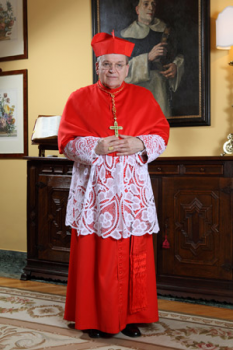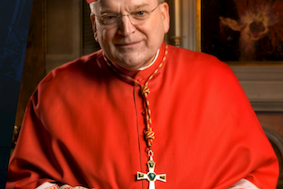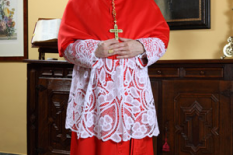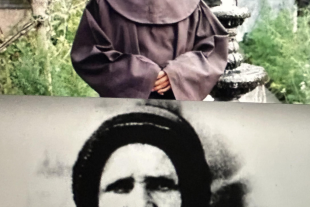Viewpoint: Has there been a 'Burke Bounce' in Scotland?

Since Cardinal Burke's recent Pontifical High Mass here in Glasgow, I've been following Scotland's Traditional Catholic Mass scene with some interest. Mostly, I've been trying to establish if there has been any kind of 'Burke Bounce' as a result of last year's Mass at The Immaculate Heart of Mary in Balornock.
To be honest, I've not observed much change and neither have I noticed droves of young people flocking to the Traditional Latin Mass. Sure, there's lots of talk around - 'sensing' and getting 'the feeling' that millennials are rushing to the Extraordinary Form but I've not seen any clear evidence of this so far. Perhaps some actual statistics or figures would be helpful? From what I've observed, younger people in Scotland can still be found within groups such as the Neocatechumenal Way and Charismatic Renewal, in reasonable numbers. Like it or not, there are many within such special charisms who truly believe that our modern liturgy closely resembles the Mass of the first hundred years of Church history.
My own 'sense' is that this supposed correlation between TLM and Millenials may be somewhat exaggerated. Especially since our younger Traddies tend to be quite active on social media, certainly more active compared to their mainstream brethren. Therefore, what looks like a match made in heaven may well be wishful thinking?
However, I've encountered a small number of Scots converts who appear to have moved directly from RCIA classes, right into an exclusive attachment to the Extraordinary Form without spending much time attending regular English Mass. Nothing wrong with that you might say, yet with this fast tracking to TLM, sometimes comes an element of animosity to our Holy Father.
For example, have you ever noticed just how much some of our own social media 'traditionalists' sound exactly like Protestant Evangelical converts to Eastern Orthodoxy? It's true! Not just the sour sedevacantists but even a few conservative Catholic bloggers whose prejudice and hostility towards the Pope occasionally sound as if was formed outside the Church.
Indeed, there are some high profile examples of this; one would be the holocaust denying, bampot 'Bishop' Richard Williamson from the canonically irregular 'SSPX Resistance'. Williamson is typical of a cleric who made a journey from Anglicanism, straight into traditionalism. As such, has never spent any real time as ordinary lay person in a mainstream parish.
Yet, it would perhaps be uncharitable and incorrect to suggest that the likes of Williamson have subconsciously transferred some kind of latent protestant hostility to the papacy into their own Catholic traditionalism via a process of osmosis. (Just as some Evangelical converts to Eastern Orthodoxy occasionally do)
That being said, it can often be frustrating listening to the constant denigration of Novus Ordo Mass (Or Mass as I like to call it) coming from a bunch of folks who never even grew up with an experience (both good and bad) of this liturgy.
If that sounds like I'm trying to reopen the previous 'Converts v Cradles' stairheid rammy, I'm not. I speak as cradle Scottish Catholic married to a fairly traditional convert (who likes matilla veils and doesn't share my own enthusiasm for Taize worship and ecumenism). I also speak as a parish RCIA catechist who is descended from a long line of German Lutherans. In short, I've no beef with converts or the beauty of the Extraordinary Form, which I myself like to attend on occasion, whenever the opportunity presents itself. I just don't want the Old Mass exclusively and neither do I want TLM to replace Mass in the vernacular.
Interestingly, way back in 2005 I attended talk at the Queen's Hall in Edinburgh given by George Galloway in which he described an identical phenomenon occurring within the Labour party. George pointed out that his fellow Scots Labour politicians Alistair Darling and John Reid were once both young Marxists. George describes Reid and Darling as being typical of the type of Communists who were happy to denounce Labour comrades such as Galloway, as Tory collaborators and capitalist stooges.
Over time, Darling and Reid's politics moved further to the right in line with the progress of their political careers. The final destination being New Labour, at which point, those within the Blairite faction began to denounce leftists such as Galloway as a dangerous revolutionary Communists. Galloway points out that this was despite the fact he'd only ever been consistently Labour Leftwing, even back in the days when everyone else was a Trotskyite Militant.
For me, this bizarre situation is somewhat analogous to this particular strain of traditionalism within our own Church where some individuals start off quite hostile to the Church and then end up more Catholic than the Pope without ever having been an ordinary mainstream Catholic. Others might point out that the phenomenon George Galloway describes occurred inside a political party, not a Church. Yet, I would argue that the criticism of Pope Francis is itself often deeply political and not entirely about theology at all.
For example, this endless disrespect towards Francis coming from various proponents of traditional liturgy has to be viewed in the wider social and political context of the Trump era and the rise of the Alt-Right. In my opinion, anyone who believes that these critics are solely concerned with internal church matters, such as liturgy and moral theology, is living in a fantasy world.
For me, this ongoing culture war between conservatives and liberals which permeates the Church today has its origins, not in the corridors of the Vatican, but in the polarisation and individualism of American civic society. My hope is that we can avoid the false dichotomy of being forced to choose between the Ordinary and the Extraordinary forms of Mass. Rather, I wish to be in a broad Church which contains both forms and I truly believe that this is Pope Francis's hope too.
Yet, when push comes to shove, I have no hesitancy in unequivocally stating my own firm belief in John XXIII's affirmation; that the second Vatican Council was indeed called in response to the inspiration of the Holy Spirit. As such, I cannot join with the traditionalists in lamenting Pope John's decision to convene the Council in 1959. Instead I must "proclaim the year of the Lord's favour" Luke 4:18-19.
Perhaps this opinion marks me out as an incorrigible liberal. Or maybe we Generation-X Scottish Catholics are all hopelessly ultramontanist as result of John Paul II visit to Glasgow in 1982. But I suspect it just means I'm an ordinary parochial Catholic.


















